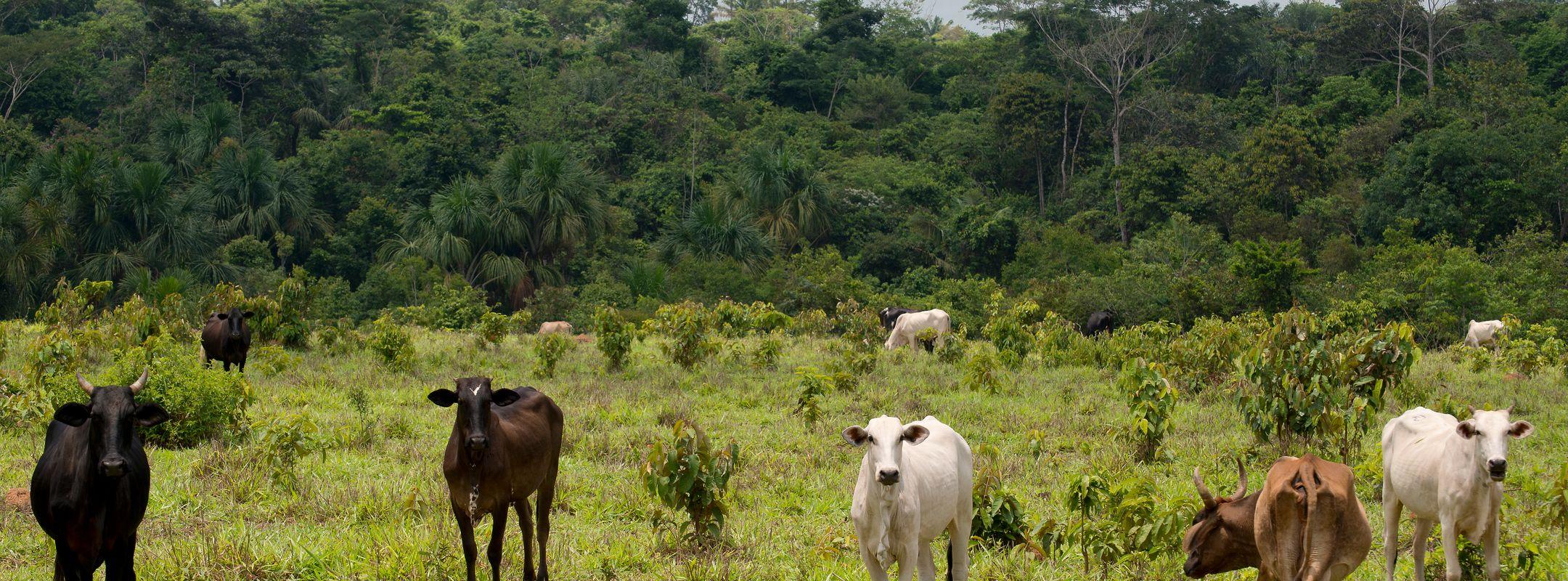Coronavirus drives US beef imports from Amazon
9 Mar 2021
2 min read
Trase analysis reveals sharp upward rise in beef imports to the United States of America linked to deforestation risk in the Brazilian Amazon.

Cattle in the Amazon // edsongrandisoli, iStock.com